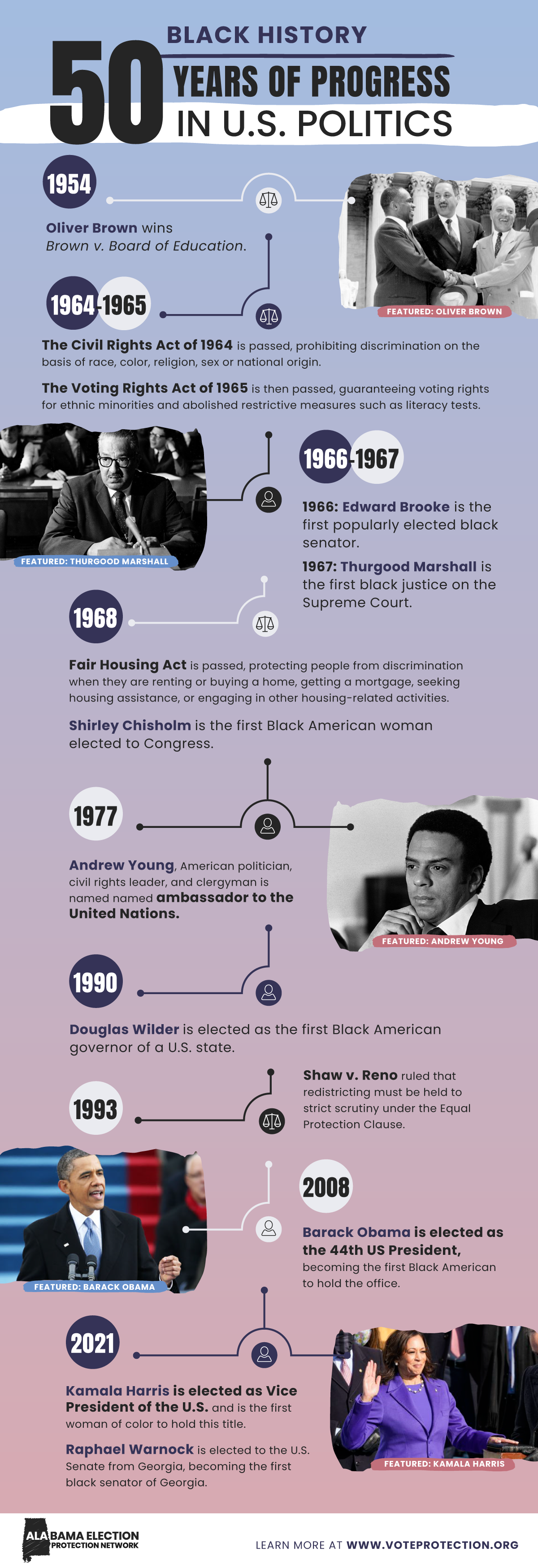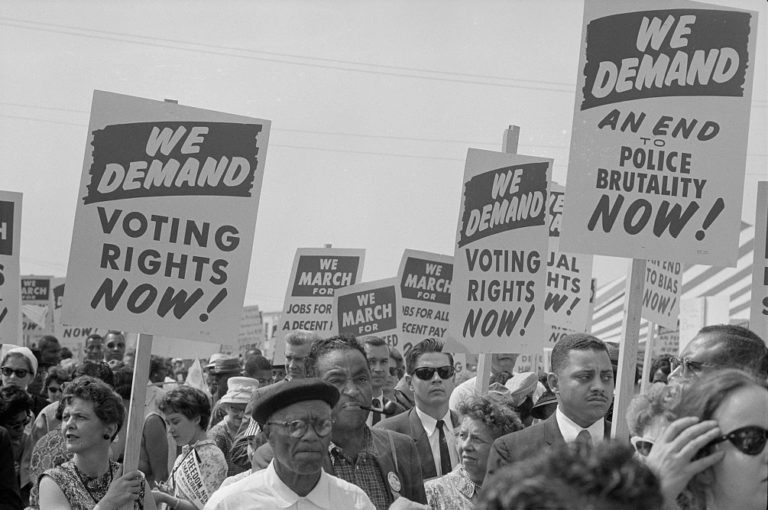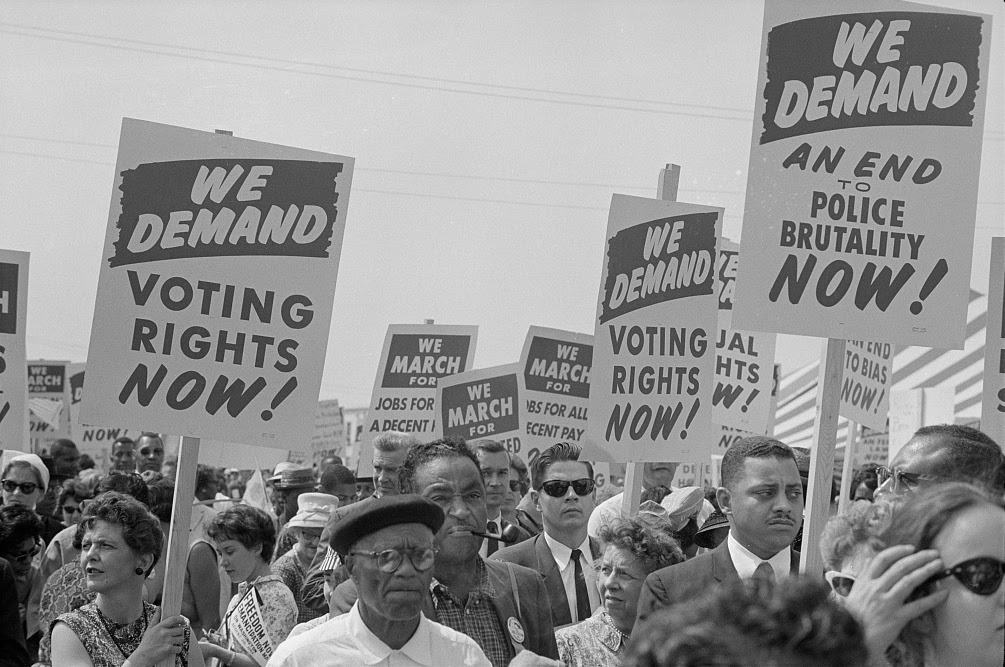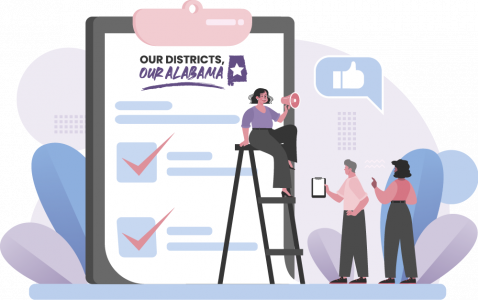Every February, this annual celebration recognizes the achievements of African Americans and Black communities and their central role in U.S. history. Read on to learn more.

1954: Oliver Brown wins Brown v. Board of Education.
Brown attempted to enroll his 7-year-old daughter in an all-white elementary school near his home in Topeka, Kansas. When the school denied his request, the NAACP filed a federal lawsuit on his behalf against the Topeka Board of Education. The case, Brown v. Board of Education, made it to the U.S. Supreme Court, which made history in 1954 when it ruled in Oliver’s favor, declaring “separate but equal” unconstitutional and ending decades of segregation in American public schools.
1964: Civil Rights Act of 1964
The Civil Rights Act of 1964 was a landmark civil rights and labor law in the United States. The act outlaws discrimination based on race, color, religion, sex, national origin, and later sexual orientation and gender identity. Additionally, it prohibits unequal application of voter registration requirements and racial segregation in schools and public accommodations and employment discrimination.
1965: Voting Rights Act of 1965
The Voting Rights Act of 1965 was a landmark piece of federal legislation in the United States that prohibited racial discrimination in voting. It was signed into law by President Lyndon B. Johnson during the height of the civil rights movement on August 6, 1965, and Congress later amended the Act five times to expand its protections. Designed to enforce the voting rights guaranteed by the Fourteenth and Fifteenth Amendments to the United States Constitution, the Act secured the right to vote for racial minorities throughout the country, especially in the South.
Before this, only an estimated twenty-three percent of voting-age Black individuals were registered nationally, but by 1969 the number had jumped to sixty-one percent.
1966: Edward Brooke is the first popularly elected Black American senator
Edward William Brooke III was an American Republican politician. In 1966, he became the first African American popularly elected to the United States Senate. He represented Massachusetts in the Senate from 1967 to 1979. He co-wrote the Civil Rights Act of 1968, which prohibits housing discrimination.
1967: Thurgood Marshall is the first Black American justice on the Supreme Court
On June 13, 1967, President Johnson nominated Marshall to the Supreme Court following Justice Tom C. Clark’s retirement. Marshall was confirmed as an Associate Justice by a Senate vote of 69–11. He became the 96th person to hold the position and the first Black American American.
1968: Shirley Chisholm is the first Black American woman elected to Congress
Shirley Chisholm is an icon for gender equality and racial equality. A former nursery school teacher, she became the first Black American woman in Congress in 1968, when she was elected to represent Brooklyn, New York, in the U.S. House of Representatives.
1968: Fair Housing Act
A follow-up to the Civil Rights Act of 1964 marked the last outstanding legislative achievement of the civil rights era. From 1950 to 1980, the total Black American population in America’s urban centers increased from 6.1 million to 15.3 million.
1977: Andrew Young is America’s first Black American ambassador to the United Nations
In 1977, President Jimmy Carter appointed Young to serve as the United States Ambassador to the United Nations. Young was the first African-American to hold the position.
1990: Douglas Wilder is the first Black American governor of a U.S. state
Lawrence Douglas Wilder is an American lawyer and politician who served as the 66th Governor of Virginia from 1990 to 1994. He was the first African-American to serve as governor of a U.S. state since the Reconstruction era and the first elected African-American governor.
1993: Shaw v. Reno
Shaw v. Reno is a United States Supreme Court case in the area of redistricting and racial gerrymandering. In a 5-4 decision, the Supreme Court ruled that redistricting based on race must be held to a standard of strict scrutiny under the equal protection clause.
2000: Condoleezza Rice is the first Black American woman nominated to serve as national security advisor
Rice was the first female African-American secretary of state and the first woman to serve as National Security Advisor. Until the election of Barack Obama as president in 2008, Rice and her predecessor, Colin Powell, were the highest-ranking African Americans in the federal executive branch’s history.
2008: Barack Obama is elected as the 44th U.S. President
Barack Obama is an American politician and attorney who served as the 44th president of the United States from 2009 to 2017. A member of the Democratic Party, Obama was the first African-American president of the United States
2021: Raphael Warnock is elected to the U.S. Senate from Georgia
Warnock is an American pastor and politician serving as the junior United States senator from Georgia. Warnock is the first African American and Democrat to represent Georgia in the Senate.
2021: Kamala Harris is elected as Vice President of the U.S.
Kamala Harris is an American politician and attorney who is the 49th and current vice president of the United States. She is the United States’ first female vice president, the highest-ranking female official in U.S. history, and the first Black American and first Asian American vice president.











